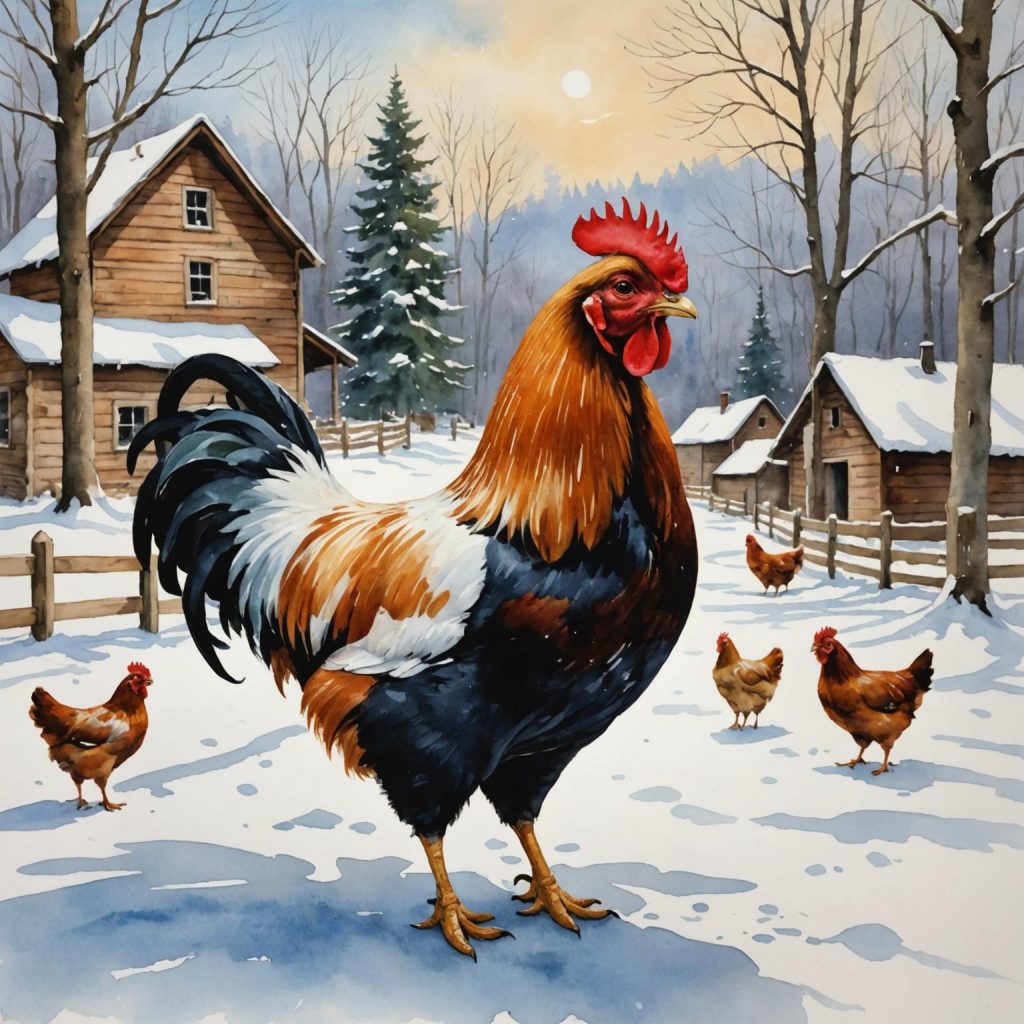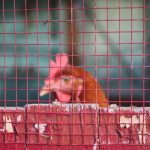Winter can have a significant impact on chickens, affecting their health, behavior, and overall well-being. As temperatures drop, chickens may experience stress and discomfort, leading to decreased egg production, reduced feed consumption, and increased susceptibility to illness. Additionally, cold weather can cause frostbite on combs and wattles, as well as respiratory issues due to poor ventilation in coops. It is important for chicken owners to understand the potential challenges that winter brings and take proactive measures to ensure the welfare of their flock.
In addition to the physical effects of winter, chickens may also experience behavioral changes during the colder months. Reduced daylight hours can disrupt their natural circadian rhythms, leading to changes in their laying patterns and overall activity levels. Chickens may also exhibit signs of boredom and frustration due to being confined to their coops for longer periods of time. Understanding these impacts is crucial for implementing appropriate strategies to support the well-being of chickens during the winter months.
Table of Contents
- 1 Providing Proper Shelter and Protection from the Elements
- 2 Adjusting Feeding and Watering Routines for Cold Weather
- 3 Maintaining Clean and Dry Coops and Bedding
- 4 Monitoring and Managing Health Issues in Winter
- 5 Implementing Enrichment Activities for Mental Stimulation
- 6 Planning for Spring and Beyond: Preparing for the Transition out of Winter
Providing Proper Shelter and Protection from the Elements
One of the most important aspects of caring for chickens in winter is providing them with proper shelter and protection from the elements. This includes ensuring that coops are well-insulated and free from drafts, as well as providing adequate bedding to keep chickens warm and dry. Additionally, it is essential to have a secure and weatherproof run or outdoor area where chickens can still have access to fresh air and exercise, even in cold weather.
In addition to shelter, it is important to provide chickens with access to fresh water that is not frozen, as well as nutritious food to help them maintain their body temperature and energy levels. This may involve using heated waterers and increasing the amount of high-quality feed during the winter months. By taking these measures, chicken owners can help their flock stay healthy and comfortable throughout the winter.
Adjusting Feeding and Watering Routines for Cold Weather
In cold weather, chickens require additional energy to maintain their body temperature and stay warm. As a result, it is important to adjust their feeding and watering routines to ensure they are getting the nutrients and hydration they need. This may involve increasing the amount of high-quality feed provided to chickens, as well as offering warm, nutrient-dense treats such as cooked grains or vegetables.
In addition to adjusting feeding routines, it is crucial to ensure that chickens have access to fresh, unfrozen water at all times. This may require using heated waterers or manually refreshing water sources multiple times a day to prevent freezing. Dehydration can be a serious issue for chickens in winter, so it is important to monitor their water intake closely and take proactive measures to prevent dehydration.
Maintaining Clean and Dry Coops and Bedding
During the winter months, it is essential to maintain clean and dry coops and bedding to prevent health issues such as frostbite and respiratory problems. This involves regularly cleaning out coops, removing soiled bedding, and replacing it with fresh, dry material. Additionally, it is important to ensure that coops are well-ventilated to prevent moisture buildup, which can lead to mold and respiratory issues for chickens.
In addition to regular cleaning, it is important to provide adequate insulation in coops to help chickens stay warm and dry. This may involve adding extra bedding, using insulating materials such as straw or hay, and sealing any drafts or gaps that could let cold air in. By maintaining clean and dry coops and bedding, chicken owners can help prevent health issues and ensure the comfort of their flock during the winter months.
Monitoring and Managing Health Issues in Winter
Winter can bring a range of health issues for chickens, including frostbite, respiratory problems, and dehydration. It is important for chicken owners to monitor their flock closely for signs of illness or discomfort and take proactive measures to address any health issues that arise. This may involve providing additional warmth and protection for chickens with frostbite, ensuring proper ventilation to prevent respiratory issues, and taking steps to prevent dehydration through regular water checks and adjustments.
In addition to monitoring physical health, it is important to pay attention to the mental well-being of chickens during the winter months. Boredom and frustration can lead to behavioral issues such as feather picking and aggression, so it is important to provide enrichment activities to keep chickens mentally stimulated. This may involve providing toys, treats, and opportunities for exercise and exploration to help alleviate boredom and stress.
Implementing Enrichment Activities for Mental Stimulation
During the winter months, chickens may spend more time indoors due to cold weather and reduced daylight hours. This can lead to boredom and frustration, which can have negative effects on their mental well-being. To help alleviate these issues, it is important to implement enrichment activities that provide mental stimulation and opportunities for natural behaviors.
Enrichment activities for chickens may include providing toys such as hanging mirrors or pecking blocks, offering treats hidden in foraging boxes or puzzles, and creating opportunities for exercise and exploration in a safe indoor environment. Additionally, providing perches at different heights and materials for dust bathing can help keep chickens active and engaged during the winter months.
Planning for Spring and Beyond: Preparing for the Transition out of Winter
As winter comes to an end, it is important for chicken owners to start planning for the transition into spring and beyond. This may involve preparing outdoor areas for increased activity, adjusting feeding routines as daylight hours increase, and monitoring for signs of stress or illness as chickens adjust to changing temperatures.
Additionally, it is important to consider any changes in flock dynamics that may have occurred during the winter months, such as new pecking orders or behavioral issues that need to be addressed. By taking proactive measures to prepare for the transition out of winter, chicken owners can help ensure a smooth adjustment for their flock as they move into the warmer months ahead.
In conclusion, caring for chickens in winter requires careful attention to their physical and mental well-being. By understanding the impact of winter on chickens, providing proper shelter and protection from the elements, adjusting feeding and watering routines, maintaining clean and dry coops and bedding, monitoring and managing health issues, implementing enrichment activities for mental stimulation, and planning for the transition out of winter, chicken owners can help ensure the welfare of their flock throughout the colder months. With proactive care and attention, chickens can thrive even in the face of winter’s challenges.
Meet Walter, the feathered-friend fanatic of Florida! Nestled in the sunshine state, Walter struts through life with his feathered companions, clucking his way to happiness. With a coop that’s fancier than a five-star hotel, he’s the Don Juan of the chicken world. When he’s not teaching his hens to do the cha-cha, you’ll find him in a heated debate with his prized rooster, Sir Clucks-a-Lot. Walter’s poultry passion is no yolk; he’s the sunny-side-up guy you never knew you needed in your flock of friends!







